Fourth Annual Mega Deltas Conference: Dialogue Between Land and Sea
Heath Kelsey ·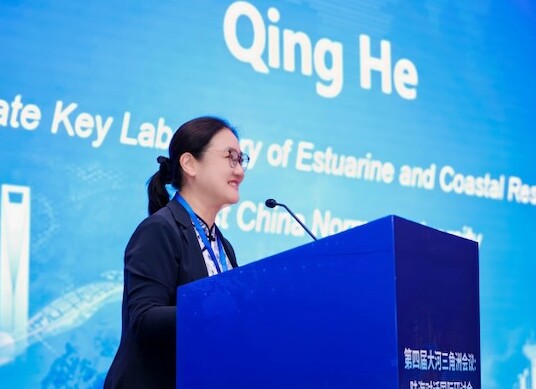
The 4th annual Mega Deltas Conference was hosted by The State Key Laboratory for Estuarine and Coastal Research at East China Normal University, in Shanghai, China from October 19–22, 2025. River delta systems are home to more than 500 million people worldwide, provide key points of trade and economic production, and support vital ecosystem functions. But these systems also face massive pressure from urbanization, transportation, pollution, and resource use. Rising sea levels, increased air and water temperatures, intense drought and flooding, and changes in storm frequency are only adding to these significant pressures. These systems require long-term, sustainable programs that leverage existing capacity to generate continuous improvement.
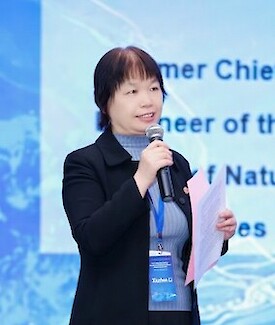
The Mega Deltas group is one of the working groups of Future Earth Coasts. As Director of the Future Earth Coasts (FEC) International Project Office (IPO) for the US, I was invited to attend, primarily to advance the use of socio-environmental report cards as tools for transdisciplinary engagement and co-design.
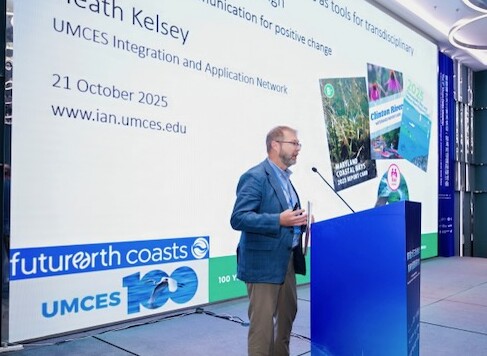
We (FEC) have also been working with other partners—including Future Earth Asia, the Shanghai Academy of Environmental Science, Living Deltas Hub, and Council Fire LLC—to develop a program for socio-environmental report cards and collective action for river delta systems, beginning in Asia and expanding to other delta systems worldwide.
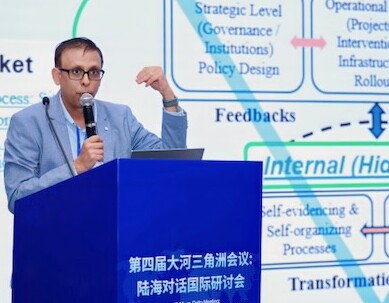
This holistic approach will create a cyclical learning systems process to understand current conditions, needed improvements for those conditions, and the most efficient and effective interventions that would have the fewest unintended consequences.
The meeting was excellent: we heard diverse stories of vulnerabilities and degradation, but also restoration and resilience from numerous river delta systems. There were stories from the Yangtze River in China, the Sundarbans delta region in India and Bangladesh, the Mekong River in Southeast Asia, the Nile River in Africa, and the Mississippi River in the United States, among many others. Themes that I noted from these discussions included high nutrient inputs and other pollution that reduced environmental quality, sea level rise, and dams that reduce or alter water flow downstream and starve the deltas of sediments needed for their growth.
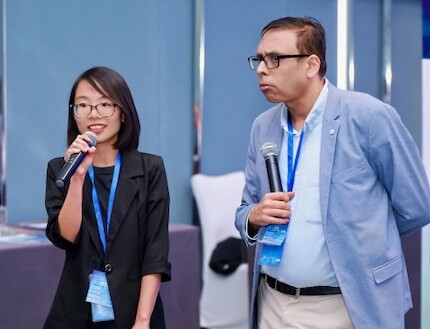
I was part of an 11-talk session titled “Coastal and Estuarine Social-Ecological Systems: Pathways to Sustainability.” In addition to socio-environmental report cards, we learned about adaptive governance models, learning toolkits, and case studies from deltas world-wide. Interestingly, much of the discussion centered around the need to incorporate local and indigenous knowledge to create a more complete understanding of priority concerns and future scenarios. This is right up IAN’s alley, and I was happy to be part of those discussions.
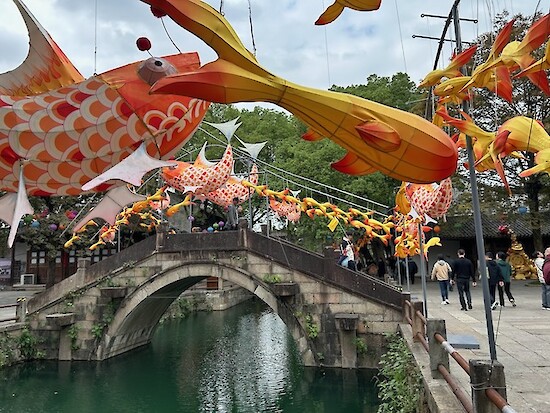
On day four of the meeting, we had a field visit to the restored ancient city of Yuang Guan, and we timed our trip to view the tidal bore on the Qiantang River as part of the traditional tide viewing ceremony that occurs in the eight and ninth months of the Chinese Lunar Calendar (October is the ninth month). It was a fascinating trip highlighting the rich history of the region. All in all, it was a great meeting, and I look forward to working with many of the participants, many of whom expressed an interest in socio-environmental report cards! Thanks so much to our excellent hosts at Future Earth Coasts, SKLEC, and East China Normal University!
About the author
Heath Kelsey
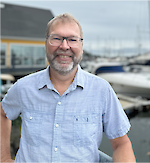
Heath Kelsey has been with IAN since 2009, as a Science Integrator, Program Manager, and as Director since 2019. His work focuses on helping communities become more engaged in socio-environmental decision making. He has over 15-years of experience in stakeholder engagement, environmental and public health assessment, indicator development, and science communication. He has led numerous ecosystem health and socio-environmental health report card projects globally, in Australia, India, the South Pacific, Africa, and throughout the US. Dr. Kelsey received his MSPH (2000) and PhD (2006) from The University of South Carolina Arnold School of Public Health. He is a graduate of St Mary’s College of Maryland (1988), and was a Peace Corps Volunteer in Papua New Guinea from 1995-1998.